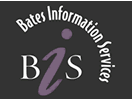| |
 16 August 2005. Those
of us who have been in the search trenches for decades have always
been aware of the vast amounts of information that search engines
don't index, or at least don't index very well. While they are
getting better at addressing the challenge of making multimedia
content accessible -- and while the world
of blogs and podcasts is building specialized search tools to mine
that content -- there are treasure troves
of information that, until now, haven't been readily accessible to
the typical Web researcher. 16 August 2005. Those
of us who have been in the search trenches for decades have always
been aware of the vast amounts of information that search engines
don't index, or at least don't index very well. While they are
getting better at addressing the challenge of making multimedia
content accessible -- and while the world
of blogs and podcasts is building specialized search tools to mine
that content -- there are treasure troves
of information that, until now, haven't been readily accessible to
the typical Web researcher.
These include the high-end professional online research services,
such as Factiva,
LexisNexis,
and Dialog,
which contain full-text articles from
trade and professional magazines, specialized newsletters,
newspapers and other publications around the world, often including
archives going back decades. Note that most of this content never
appears on the open Web for free; publishers that rely on
subscriptions for most of their revenue have no incentive to make
their current and archived content available on the Web to
non-subscribers. (For a lengthier discussion of the distinction
between what can be found on the free Web and professional online
services, see the white paper I wrote, entitled
"Free,
Fee-Based and Value-Added Information Services".)
|
|
| |
Yahoo recently tackled the problem of making subscription-only
content available through its
Yahoo Search Subscriptions, which it
rolled out during mid-June
as a beta service.
Unlike Google
Scholar, the focus is on current content, with more of a
business and news focus. The resources available through Yahoo
Search Subscriptions include Consumer Reports, the (London)
Financial Times, Factiva, LexisNexis, a collection of market
research reports, engineering publications, investment news, and the
New England Journal of Medicine.
You
can select which sources to search; you do not
have to subscribe to any of these resources to conduct a
search. However, if you click through any of the links from the
search results page, you will be prompted to provide your subscriber
ID and password, or to purchase one-time
access to the resource. Prices vary dramatically; an ad hoc purchase
of an article from the New England Journal of Medicine costs $10,
whereas an article of similar length from Factiva is available for
$1.95 (or $.95, if you pre-pay for 10
articles).
One of the advantages of the Yahoo
Search Subscriptions site is that you can get a sense of what
information is available on a topic, even if you aren't willing to
pay for the full text of the article. (And, as Gary Price of
ResourceShelf.com often reminds us, your local public library
may make this content available to library card holders at no
charge.) If you do need to purchase articles, the cost is
reasonable, particularly if you compare the ad hoc price to the
monthly subscription fees charged by some of the professional online
services.
You can also use the Advanced
Search option of the standard Yahoo search engine, which lets you
use the Boolean operators (AND, OR and NOT), phrase searching, and
so on. However - and this is no surprise - you cannot use the
specialized search syntax when searching LexisNexis through Yahoo
Search Subscriptions.
The most significant
limitation of Yahoo Search Subscriptions is that you are searching a
subset of all the content available on the subscription sites. This
is not well-documented but, for some resources, you may only be
searching the past six months of content, or a small subset of the
publications available to regular subscribers. By no means is this
an adequate substitute for a regular subscription to a professional
online service, such as LexisNexis,
Factiva or Dialog.
For information
professionals and librarians, one of the uses of Yahoo Search
Subscriptions is to pique the curiosity of their clients, to show
them what information is available beyond the reach of traditional
search engines. And for researchers who do not have access to any of
the subscription services, Yahoo Search Subscriptions does offer a
way to purchase articles on the fly, with the caveat that the
researcher is only seeing a small portion of the material available
to subscribers, who go directly to these
information sources.
© 2005 Mary Ellen Bates all rights reserved.
|
|